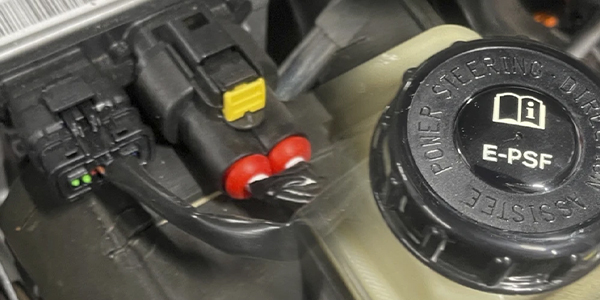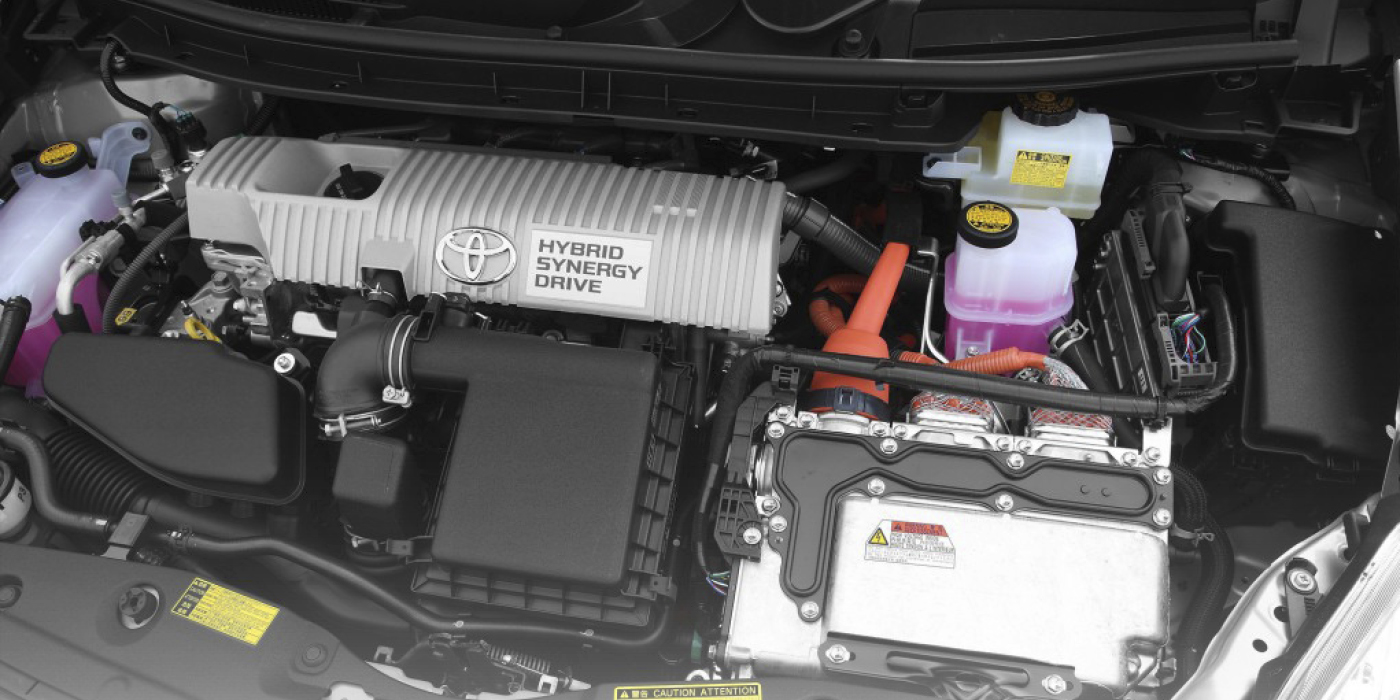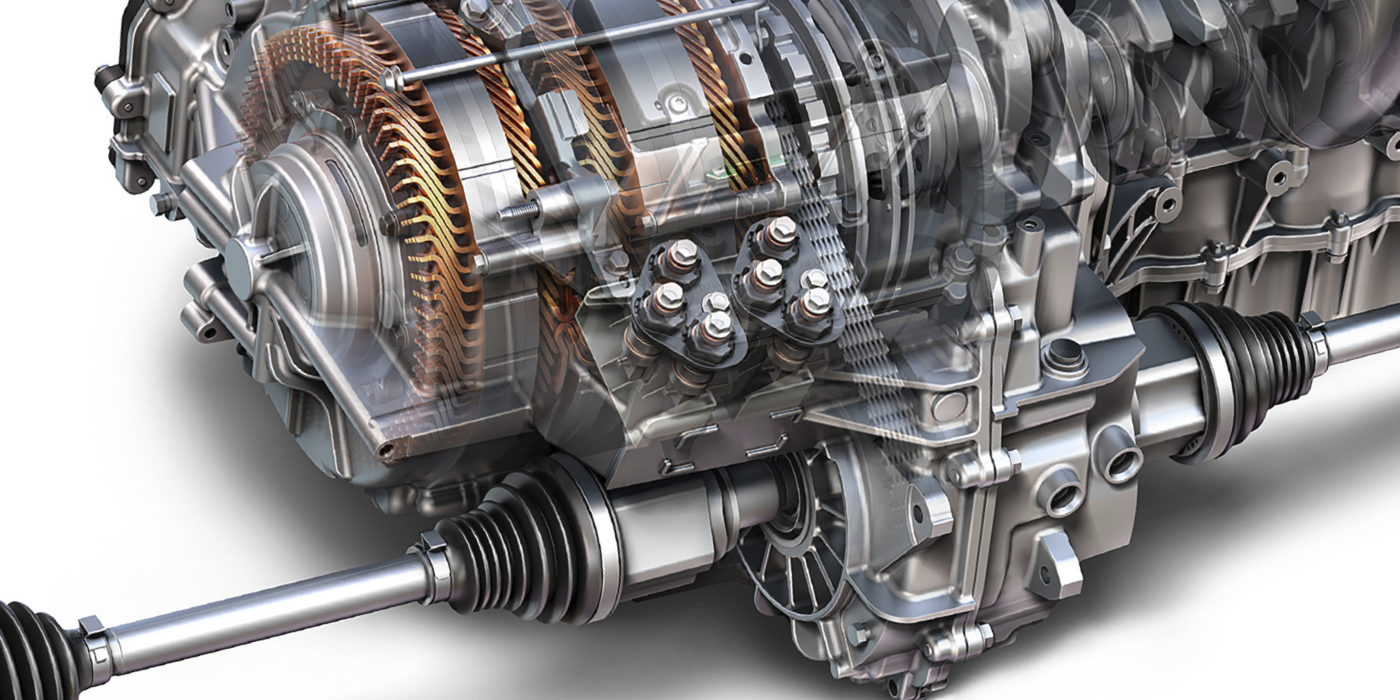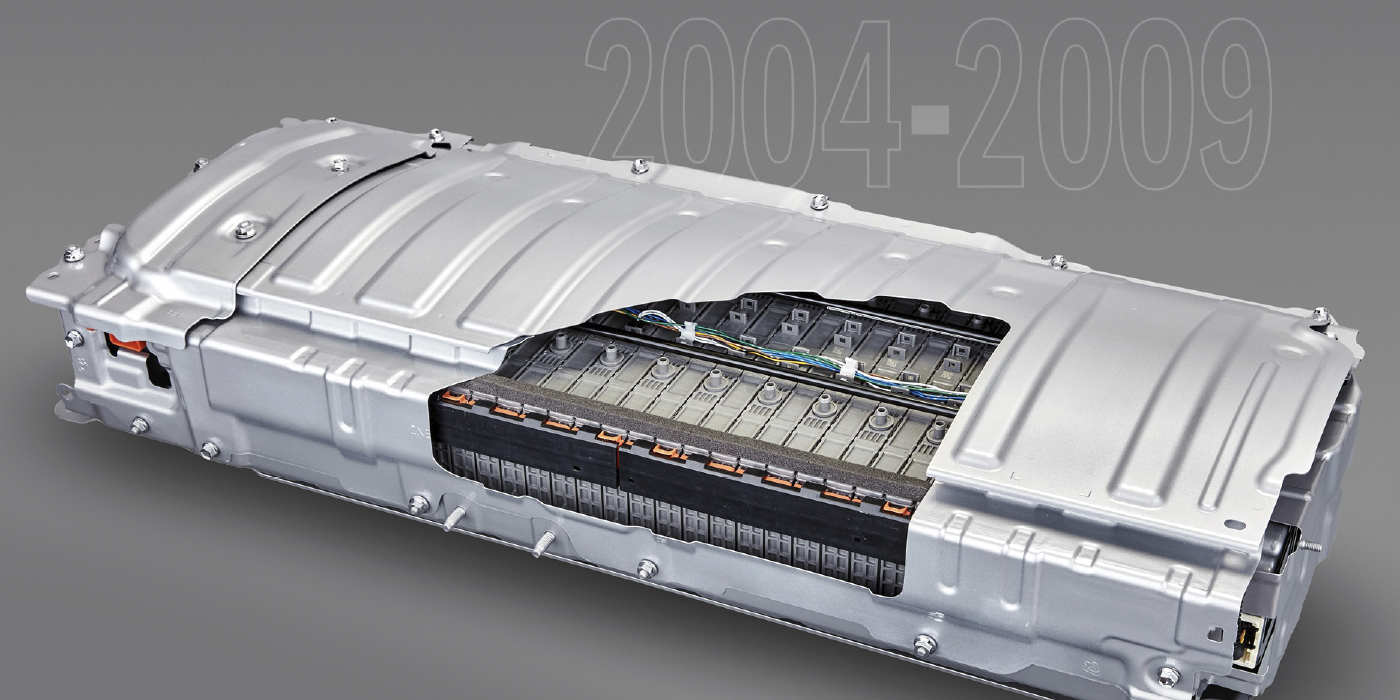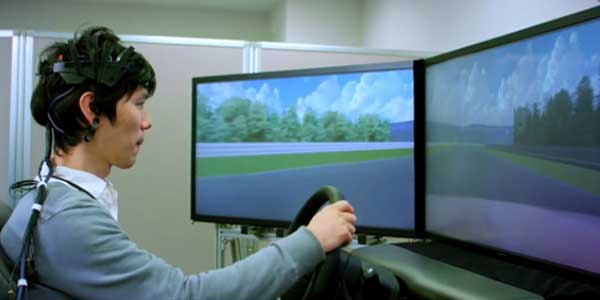
What if your vehicle could read your mind?
As fanciful as that might sound, Nissan said it’s working on technology that will enable vehicles to interpret signals from the driver’s brain, “redefining how people interact with their cars.”
Nissan’s brain-to-vehicle (B2V) technology “promises to speed up reaction times for drivers and will lead to cars that keep adapting to make driving more enjoyable,” the automaker said.
Here’s how it works: The driver wears a device that measures brain-wave activity, which then is analyzed by autonomous systems. By anticipating intended movement, the systems can take actions – such as turning the steering wheel or slowing the car – 0.2 to 0.5 seconds faster than the driver, while remaining largely imperceptible, according to Nissan.
“Our systems will be able to tell an autonomous vehicle [that] the driver will be steering in the next 300 milliseconds, and we can use this window in time to enhance the execution, synchronizing the support of the AV [autonomous vehicle] with your own actions,” Lucian Gheorghe, senior innovation researcher at the Nissan Research Center in Japan, says in a Nissan marketing video. Gheorghe is leading Nissan’s B2V research. “You will always feel that you are in control, driving perfectly on this winding road.”
Nissan will demonstrate the capabilities of the B2V technology at the CES 2018 trade show, which takes place Jan. 9-12 in Las Vegas. Nissan will use a driving simulator to demonstrate some elements of the technology at CES, and Gheorghe will be on hand to answer questions.
Nissan’s display will be at booth 5431 in the Las Vegas Convention Center’s North Hall.
“When most people think about autonomous driving, they have a very impersonal vision of the future, where humans relinquish control to the machines,” said Nissan Executive Vice President Daniele Schillaci. “Yet B2V technology does the opposite, by using signals from their own brain to make the drive even more exciting and enjoyable. Through Nissan Intelligent Mobility, we are moving people to a better world by delivering more autonomy, more electrification and more connectivity.”
Nissan said the B2V technology is the result of research into using brain-decoding technology to predict a driver’s actions and detect discomfort:
- Predict – By catching signs that the driver’s brain is about to initiate a movement – such as turning the steering wheel or pushing the accelerator pedal – driver-assist technologies can begin the action more quickly. This can improve reaction times and enhance manual driving, according to the automaker.
- Detect – By detecting and evaluating driver discomfort, artificial intelligence can change the driving configuration or driving style when in autonomous mode.
Other possible uses include adjusting the vehicle’s internal environment, according to Gheorghe. For example, the technology can use augmented reality to adjust what the driver sees and create a more relaxing environment.
“The potential applications of the technology are incredible,” Gheorghe said. “This research will be a catalyst for more Nissan innovation inside our vehicles in the years to come.”
Article courtesy BodyShop Business.


